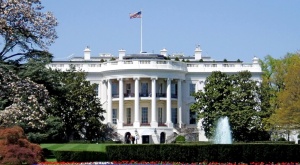Want to execute, negotiate or arrange dealing transactions in the US from abroad? You’ll have to register with the SEC
International law firm Morrison & Foerster has published a comprehensive document which outlines a new ruling from the Securities and Exchange Commission (SEC) that, as of February 10 this year, applies to security-based swap dealing transactions between non US persons that are “arranged, negotiated or executed in the United States. The final ruling on this […]

International law firm Morrison & Foerster has published a comprehensive document which outlines a new ruling from the Securities and Exchange Commission (SEC) that, as of February 10 this year, applies to security-based swap dealing transactions between non US persons that are “arranged, negotiated or executed in the United States.
The final ruling on this matter will be effective 60 days after publication in the Federal Register, which is likely to occur imminently.
According to Morrison Foerster’s report, entities engaging in swap transactions that are the result of the market-facing activity of sales or trading personnel in connection with a particular transaction which includes interactions with counterparties or their agents.
Additionally, the execution of such transactions where one party is not located in the United States will also require the non US entity to register with the SEC.
The new ruling dictates that the market-facing activity of arranging, negotiating or executing such transactions must be carried out by staff which are located at a US branch or office of the non-US person or its agent in order to be counted toward the de minimis threshold.
In this scenario, it will be considered that the SEC will have to be satisfueid that any non US entity or person is an employee of a non US entity or person in order that the SEC can consider whether the non US entity is able to control or supervise the actions of an individual when considering whether such an individual is an actual member of staf at a US branch office, or an agent of that entity.
The cross-border rulings with regard to this matter are indeed further evidence that the US wishes to ensure that it has jurisdiction over transactions that are carried out by entities overseas, further testimony to the US approach to being able to properly supervise activity across the board, within all components of the electronic trading structure and ensure that good practice is not let down by a component that is based overseas.
There are certain exceptions, one example being security-based swaps that are executed, negotiated or arranged in the US by well recognized institutions such as multiateral development banks. all of which are defined in the rules set out by the SEC.
Interestingly, among those not exempt from the ruling are swaps which are entered into anonymously on execution facilities or national securities exchanges and are cleared through a clearing agency as long as that particular transaction is executed in the United States, which indeed applies to the methodology and trading structure behind the majority of cases in the US, as they are traded on some of Chicago’s large electronic venues as well as, in accordance with Dodd Frank Act rules, cleared via a central counterparty and trade depository.
For the full document from Morrison & Foerster, click here.









